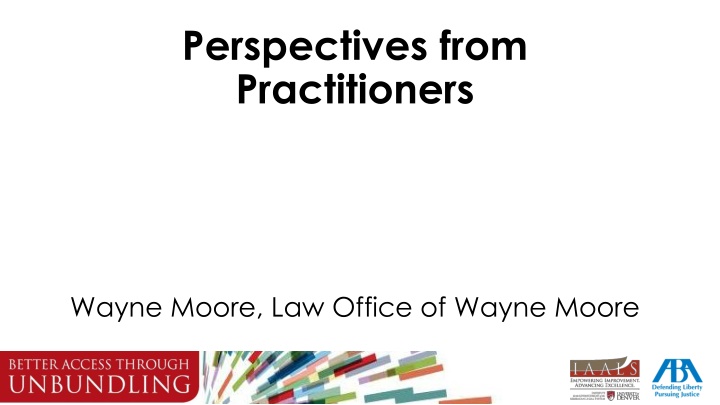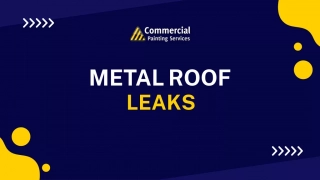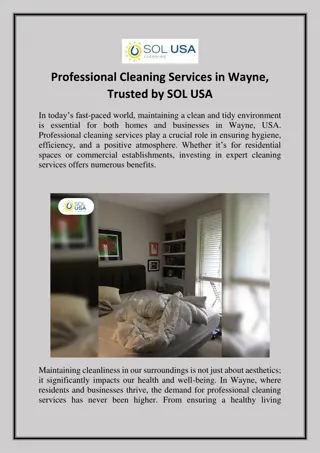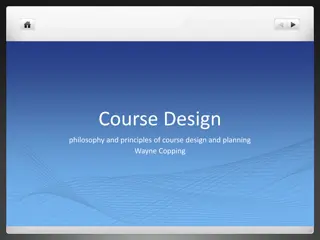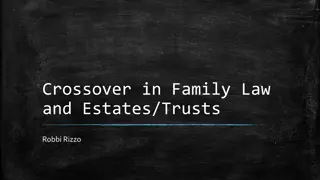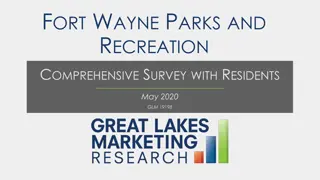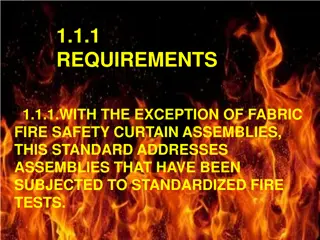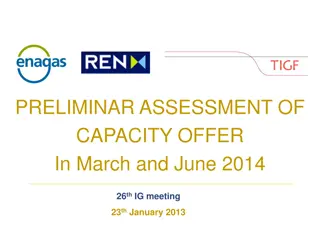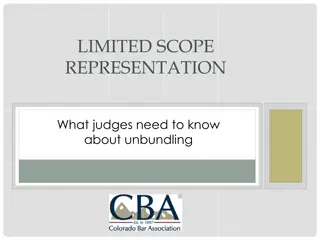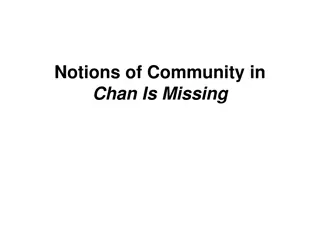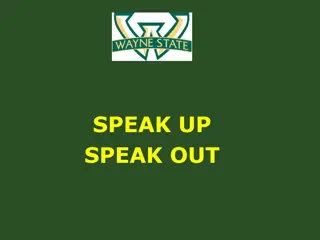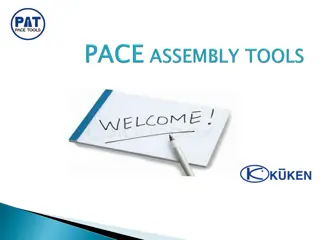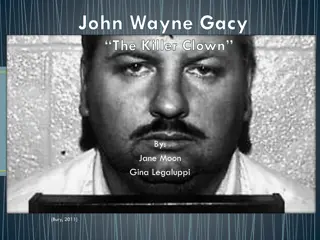Insights into Unbundled Legal Services and Practice Tools by Wayne Moore
This content highlights perspectives from practitioner Wayne Moore regarding unbundled legal services and practice tools such as questionnaires, checklists, and special retainer agreements. It discusses various legal services offered in an unbundled manner, including bankruptcy, real estate closings, guardianships, protective orders, probate, and small claims, with clients representing themselves in court proceedings. The focus is on empowering moderate-income clients through self-help materials and clear case closure points for re-opening cases.
Download Presentation

Please find below an Image/Link to download the presentation.
The content on the website is provided AS IS for your information and personal use only. It may not be sold, licensed, or shared on other websites without obtaining consent from the author.If you encounter any issues during the download, it is possible that the publisher has removed the file from their server.
You are allowed to download the files provided on this website for personal or commercial use, subject to the condition that they are used lawfully. All files are the property of their respective owners.
The content on the website is provided AS IS for your information and personal use only. It may not be sold, licensed, or shared on other websites without obtaining consent from the author.
E N D
Presentation Transcript
Perspectives from Practitioners Wayne Moore, Law Office of Wayne Moore
Unbundled Legal Services By Wayne Moore Conference on Unbundled Legal Services Denver October 26-27, 2017 Bankruptcy (Ch 7, no asset) (some Ch 13s)(21% pro se) (2 bundles) Client prepares mailing list, income statement, list of unsecured creditors Represents self at creditors hearing and provides copy of the discharge Real Estate Closings (1 or 2 bundles) Client represents self at closing Unemployment Hearings (90% pro se) (1 bundle) Client files appeal, represents self at hearing, and provides decision Uncontested adoptions (38% pro se) (3 bundles) Client files pleadings, arranges for service of process, obtains consent, and arranges for any witnesses, Represents self at court hearing and provides signed judgment
Uncontested guardianships of adult/child (3 bundles) Client files pleadings, arranges for service of process, sends notices, obtains consent, and arranges for any witnesses, Represents self at court hearing and provides signed judgment Protective orders (98% pro se) (1 or 2 bundles) Client files pleadings, arranges for service of process, arranges for any witnesses, Represents self at court hearings and provides signed judgments Uncontested probate (45% pro se) (3 or 4 bundles) Client files pleadings, sends notices, obtains consent, inventories assets, pays bills, sells assets, pays taxes, transfers property Represents self at any hearings, provides court notices and signed court orders Small Claims (Plaintiff) (1 bundle) Client files pleadings, arranges for service of process, gathers evidence, Represents self at court hearing and provides signed judgment
Unbundling Practice Tools (Particularly for moderate income clients) Questionnaires Checklists for screening cases Special retainer agreements (Fees paid in advance) Self-help materials Clear point of case closure (Re-open case with new retainer)
Questionnaires Ensure all facts are gathered during first interview Ensure all issues are considered
Special retainer agreements Client, not attorney, is responsible for case Attorney only assists Clear list of attorney s tasks No list of client s tasks (included in self-help materials) Case closes when attorney s last task is completed or after deadline for client action expires Case is re-opened if more tasks are required with new retainer agreement
Self-help materials Step-by-step list of all tasks that client must perform to complete case Includes list of evidence that must be brought to the hearing Includes opening statement to judge Includes instructions for presenting evidence Includes questions that must be answered by client/witnesses at hearing
Case closure Closes upon attorney s completion of last task or expiration of deadline for client action Close-out letter is sent Additional tasks require re-opening case with new retainer agreement Re-opened case is closed upon attorney s completion of last task or expiration of deadline for client action Key: minimizes case monitoring
Fees paid in advance No refund if client does not perform tasks Sometimes allow payment in 2 or 3 installments; one for each bundle
Moderate income people- harder to serve Potential for higher uncollectables Must charge lower total fees: $200 to $600 Higher volume of cases Higher marketing costs (time) Higher intake/screening costs Higher monitoring costs (quality control) Extreme efficiency required Non-profit corporate structure important
Harder to Serve Longer interview time Poorer reading skills Difficulty traveling Difficulty taking time off from work More likely to be no-shows without notice Don t trust lawyers or courts Low prices do not reduce their expectations Under stress
Potential for higher uncollectables Require payment in advance OR Actively manage payments (Attorney is 3 parts advocate and 1 part collection agent)
Higher marketing costs Heavily dependent on referrals Need to be non-profit corporation (Referrals from legal aid and social service agencies tend to be lower income) Solutions Co-locate with other attorneys Google ads
Higher intake/screening costs Vast majority of referrals can t afford even low fees (Conversion rates are less than 1 in 10) Solutions Use home-based employee, who is paid based on time spent on the phone, to handle intake Use web-based intake and scheduling systems Charge for initial interview ($75 (in-person)/$45 (telephone))
Higher monitoring costs Greater danger of missed deadlines and client confusion Solutions Divide case into bundles, which end when attorney completes task or client misses deadline Ex: Bankruptcy (2 bundles) - Initial interview (client receives self-help materials, gathers info and completes 3 forms within deadline) - Completion of petition (client files and represents self at hearing)
Extreme efficiency required Use questionnaires and checklists Use document generators (not cut-and-paste or fillable forms) Minimize case monitoring Strive for paperless office
Summary: Key barriers to serving moderate income people Low average fee High marketing/intake/screening/monitoring costs
Options Use sliding fee scale instead of unbundling -Reduces marketing/intake/screening/monitoring costs - But, hard to control average fee ($600) Use unbundling - Can charge traditional hourly rates - But, hard to control marketing/intake/screening/monitoring costs Use hybrid (Both unbundled and sliding fee best option) - Use a balance of both methods
Conclusion Fee-for-service practice devoted to moderate income people is not scalable Very few dedicated unbundled practices exist Slow growth of sliding fee scale practices because of low wages (29 in 7 years)
Scalable solution Legal website to find, screen and refer paying clients Many attorneys willing to accept limited number of flat fee clients - Coach clients to represent themselves - Represent clients in court, who have performed preliminary steps themselves Website derives income from selling self-help materials containing vouchers listing attorneys willing to complete case for flat fee
Legal websites role Sell self-help materials that contain a voucher for hiring an attorney - Coaching: materials explain how to: - Fill out intake questionnaire - Prepare court pleadings - Gather necessary evidence - Representation in court: materials explain how to: - Fill out intake questionnaire - Gather evidence for use at court hearing - Voucher - Contact information for local participating lawyers
Participating attorneys role Coaching - Review intake questionnaire with client - Review court pleadings prepared by client - Go over steps in self-help materials required to finish case Representation in court - Review questionnaire with client - Review evidence collected by client - Review court file - Represent client in court
Clients role Coaching - Fills out intake questionnaire - Prepares draft court pleadings - Meets with attorney and pays full flat fee - Revises pleadings per attorney s advice - Files pleadings and arranges for service of process - Meets with attorney to review remaining steps - Represents self at court hearing
Clients role Attorney represents client at court hearing - Fills out intake questionnaire - Collects necessary evidence - Meets with attorney, pays full flat fee and provides evidence - Attends court hearing with attorney
